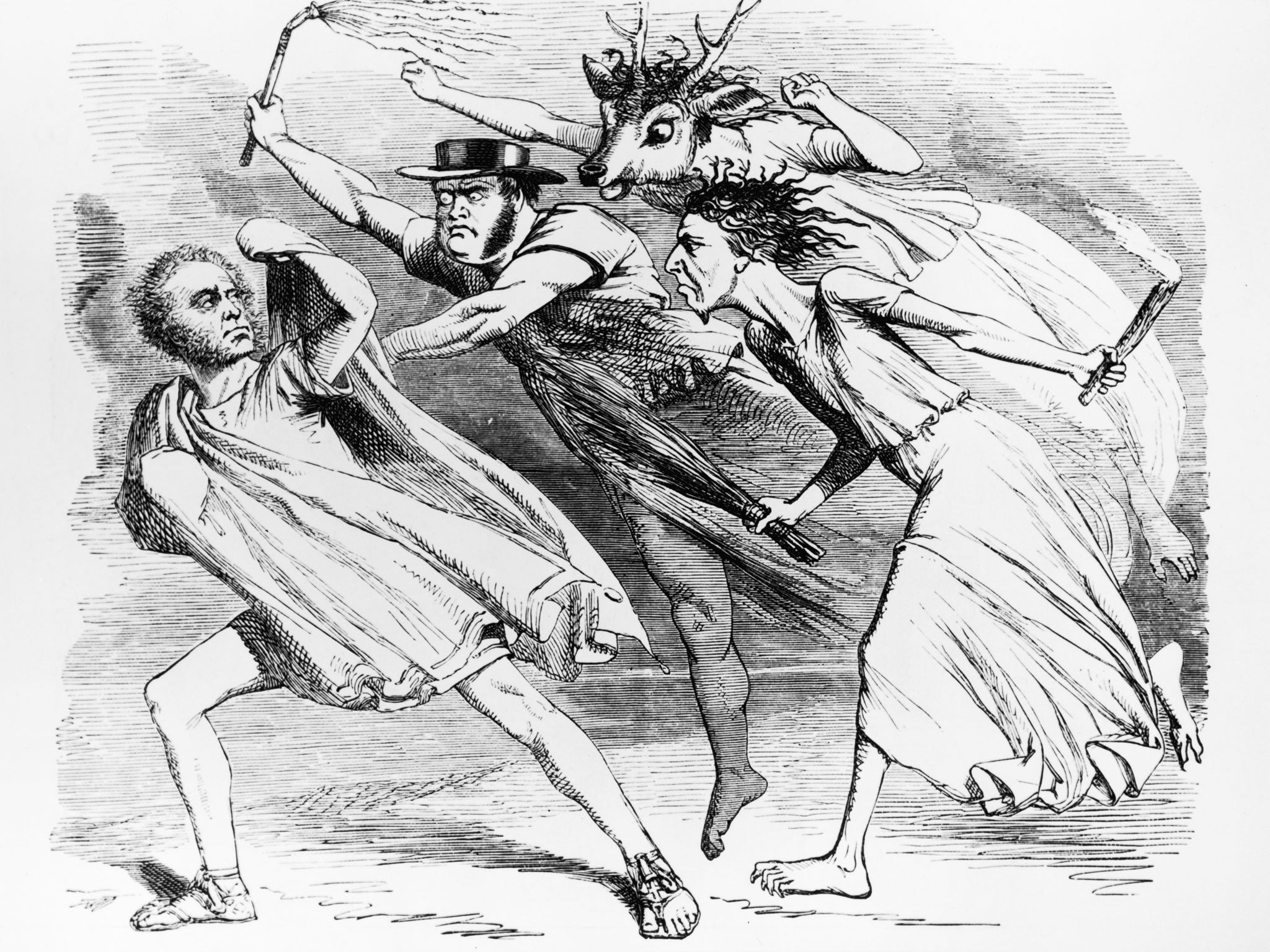Original Spin: Downing Street and the Press in Victorian Britain by Paul Brighton, book review
This account of No 10's attempts to control the press in the Victorian era lacks spark

Your support helps us to tell the story
From reproductive rights to climate change to Big Tech, The Independent is on the ground when the story is developing. Whether it's investigating the financials of Elon Musk's pro-Trump PAC or producing our latest documentary, 'The A Word', which shines a light on the American women fighting for reproductive rights, we know how important it is to parse out the facts from the messaging.
At such a critical moment in US history, we need reporters on the ground. Your donation allows us to keep sending journalists to speak to both sides of the story.
The Independent is trusted by Americans across the entire political spectrum. And unlike many other quality news outlets, we choose not to lock Americans out of our reporting and analysis with paywalls. We believe quality journalism should be available to everyone, paid for by those who can afford it.
Your support makes all the difference.Leaders down the ages have attached supreme importance to news management, and spin doctors, despite their new name, must rival prostitutes for the distinction of belonging to the world's oldest profession. Certainly the likes of Bernard Ingham and Alastair Campbell can trace their ancestry back at least to classical times and the title of Paul Brighton's book, Original Spin, is hardly appropriate for an account of Downing Street's endeavours to control Fleet Street during the 19th century.
However he does correctly identify this period as one which saw the evolution of the Fourth Estate and the development of public opinion, itself assisted by extensions of the franchise. Governments, increasingly unable to use their traditional weapons of bribery, intimidation and taxation, had to find more sophisticated means to regulate newspapers and thus influence voters. So ministers supped with journalists, all holding long spoons. Lord Brougham called Palmerston's association with John Delane, editor of The Times, "devil-worship".
Palmerston was, in fact, the most sedulous manipulator of the press during the Victorian age. He engaged in the standard transaction of leaking information in return for support. He penned anonymous articles. He gave newspapers advertising and newspapermen sinecures.
He invited journalists to his soirées, prompting Disraeli's comment that "the once stern guardians of popular rights simper in the enervating atmosphere of gilded saloons". Above all Palmerston lionised Delane, promoting Times men and adopting Times measures often enough for Lord John Russell to claim that The Thunderer was "not the organ but the organiser of the Ministry".
This was an exaggeration, though Delane's pretensions burgeoned with age. He proclaimed that The Times was the "exponent of the popular will" and a "perpetual committee of the legislature". Other editors echoed him. W T. Stead of the Pall Mall Gazette said that he and his ilk were the uncrowned kings of an educated democracy, receiving a daily mandate from their readers. Faced with such declarations, politicians were resolved to squash or square the press. The time had passed, said the Duke of Wellington's media manager John Wilson Croker, "when statesmen might safely despise the journals", though the business of regulating them had to be conducted "in the most profound secrecy".
Brighton examines how each Prime Minister, from the Younger Pitt to the Marquess of Salisbury, carried out this task. Some, such as Lord Derby, professed disdain for the whole tribe of scribblers, just as Lord Salisbury in youth opposed the abolition of stamp duties on journals, the so-called "taxes on knowledge", with the argument that newspapers did not contain any knowledge. But Derby did seek press support late in his career, having been warned by Prince Albert himself that: "The country is governed by newspapers, and you have not a newspaper." This was hyperbole and as late as the Edwardian period Arthur Balfour could profess never to read newspapers, which was untrue.
Most Prime Ministers, however, resembled Lord Rosebery in keeping a stable of journalists who, it has been said, were "nearly as well groomed as his stable of racehorses". Salisbury gave honours to newspaper proprietors and sometimes turned his back on the Woolsack in the Lords to speak directly to reporters in the gallery. Gladstone became a master of publicity. Disraeli made strenuous efforts to conceal his heavy involvement with the press, going so far as to criticise his own speeches in a newspaper he secretly owned. He too flattered Delane, assuring him that his advice about ministerial appointments was decisive.
Brighton's account of all this is solid, fluent, well-informed and workmanlike. It is also textbook-like, pedestrian, repetitive and unoriginal. It relies almost exclusively on printed sources, most heavily on Stephen Koss's magisterial Rise and Fall of the Political Press in Britain. It lacks the spark let alone the whiff of brimstone required, as Thomas Carlyle suggested, in any treatment of the Fourth Estate. His proposed title for a history of newspapers was "Satan's Invisible World Displayed."
I. B.Tauris, £25. Order at £21.25 inc. p&p from the Independent Bookshop
Join our commenting forum
Join thought-provoking conversations, follow other Independent readers and see their replies
Comments